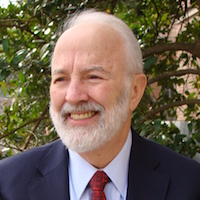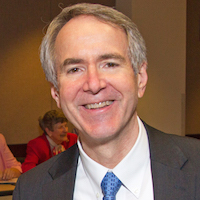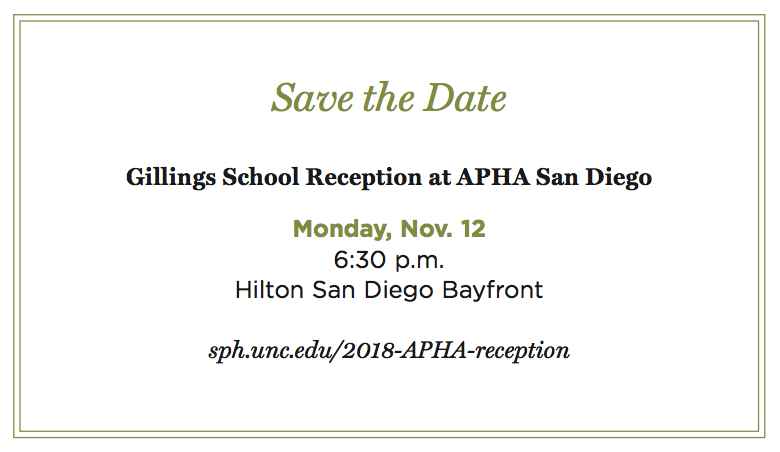November 2017 — April 2018 School News
May 15, 2018
Read more at sph.unc.edu/news.
Key to Departments
BIOS Biostatistics
EPI Epidemiology
ESE Environmental Sciences and Engineering
HB Health Behavior
HPM Health Policy and Management
MCH Maternal and Child Health
NUTR Nutrition
PHLP Public Health Leadership Program
Selected Publications

Anna Austin

Meaghan Shanahan
Anna Austin, doctoral student, and Meghan Shanahan, PhD, assistant professor of MCH, found childhood abuse and neglect were associated with prescription opioid misuse in early adulthood and the role of pain and depressive symptoms in adolescence. Their findings were published in the February Children and Youth Services Review.

Jamie Bartram

Ryan Cronk
A study, co-authored by Jamie Bartram, PhD, and Ryan Cronk, PhD, and published Jan. 11 in the International Journal of Hygiene and Environmental Health, provides estimates of environmental conditions in health care facilities in low- and middle-income countries. Bartram, Don and Jennifer Holzworth Distinguished Professor of ESE and Water Institute director, and Cronk, postdoctoral scholar at the Water Institute, found only 2 percent of health care facilities provide basic services.

Nabarun Dasgupta
Nabarun Dasgupta, PhD, alumnus and senior epidemiologist at UNC’s Injury Prevention Research Center, is lead author of a commentary about social and economic factors that fuel the opioid crisis. His analysis was published Dec. 21, 2017, in the American Journal of Public Health.

Karine Dubé
Two papers by Karine Dubé, DrPH, PHLP assistant professor, help map the complex ethics of research into an HIV cure. The work was published Dec. 5, 2017, in AIDS Research and Human Retroviruses and Dec. 8, 2017, in PLOS Medicine.

Marc Emerson
Marc Emerson, EPI doctoral student, led a study that is one of the first to examine potential health disparities among urban American Indians, particularly Alaskan Natives. Findings were published Nov. 29, 2017, in Cancer Research.

Daniel Erim

Stephanie Wheeler
Daniel Erim, MD, doctoral student, and Stephanie Wheeler, PhD, associate professor, both in HPM, conducted a study showing that chemotherapy prior to surgery was more cost-effective than surgery alone in patients with advanced ovarian cancer. Findings were published Dec. 19, 2017, in Gynecologic Oncology.

Dilshad Jaff
Dilshad Jaff, MD, MPH, adjunct assistant professor of MCH and program coordinator in the Gillings School’s Research, Innovation and Global Solutions office, co-authored a study finding that Syrian refugees in camps in Jordan would benefit from palliative care currently unavailable to them. The work was published Feb. 27 in Medicine, Conflict and Survival.

Michael Kosorok

Yingqi Zhao

Donglin Zeng
Xin Zhou, PhD, 2015 BIOS alumnus, and Michael Kosorok, PhD, W.R. Kenan Jr. Distinguished Professor and chair of BIOS, are lead authors of significant research showing the successful use of machine learning to discover precision medicine and potentially salvage failed clinical trials. Their work, which appeared in Vol. 112 (2017) of the Journal of the American Statistical Association, is an important advancement of ‘outcome-weighted learning’ for precision medicine that was developed originally in 2012 by BIOS alumna Yingqi Zhao, PhD, along with Kosorok, Donglin Zeng, PhD, BIOS professor, and A. John Rush, MD, professor emeritus at the National University of Singapore.

Jeannine Herrick
N.C. Institute for Public Health staff members, including project manager Jeannine Herrick, MPH, worked with the John Rex Endowment to produce the report Exploring the Social Determinants of Health – Wake County (N.C.), an assessment and online Story Map that describes conditions related to childcare centers, food deserts and housing costs. See tinyurl.com/NCIPH-Wake-social-determinants.

Kun Lu
Kun Lu, PhD, ESE assistant professor, found in a mouse study that nicotine alters the gut microbiome differently in females than males, thus making it more difficult for women to quit smoking. Findings were published Oct. 16, 2017, in Chemical Research in Toxicology.

Hazel Nichols
A study led by Hazel Nichols, PhD, assistant professor of EPI, examined the risk of premature birth and other health concerns for the newborns of breast cancer survivors. Published Jan. 4 in the International Journal of Cancer, the study also recommended that fertility counseling is important for women with breast cancer who may want to have children.

Shu Wen Ng

Barry Popkin
Shu Wen Ng, PhD, NUTR associate professor, is lead author of a study published Feb. 14 in the American Journal of Preventive Medicine. The study showed that improvement in the food choices and nutritional content of WIC (Special Supplemental Nutrition Program for Women, Infants and Children) packages has produced changes in food purchase habits among WIC participants. Ng also worked with Barry Popkin, PhD, W.R. Kenan Jr. Distinguished Professor of NUTR, and Juan Carlos Caro, HPM doctoral student, to estimate likely outcomes if Colombia were to institute a national tax on sugar-sweetened beverages. That work was published Dec. 20, 2017, in PLOS One.

Aunchalee Palmquist

Kristin Tully
Aunchalee Palmquist, PhD, assistant professor of MCH, contributed to and co-edited the book Breastfeeding: New Anthropological Approaches (New York: Routledge, 2018). Kristin Tully, PhD, research associate at the Carolina Global Breastfeeding Institute, also co-authored a chapter in the book on enabling breastfeeding.

Bryan Pence
A study published Feb. 21 in JAMA Psychiatry links depression in people living with HIV to increased likelihood of missing medical appointments, increased risk of HIV treatment failure and higher mortality rates. Co-authors include Brian Pence, PhD, associate professor, Jon Mills, PhD, postdoctoral scholar, Tiffany Breger, doctoral student, and Bradley Gaynes, MD, MPH, adjunct professor, all in EPI.

Herbert Peterson
Bert Peterson, MD, W.R. Kenan Jr. Distinguished Professor of MCH, authored two articles about ways implementation science can deliver on the promise to achieve health and well-being for mothers and newborns globally. Peterson’s perspectives were published in the March Obstetrics and Gynecology.

Barbara K. Rimer
A March 13 report by the President’s Cancer Panel, chaired by Barbara K. Rimer, DrPH, Gillings School dean, found that urgent action must be taken to address the dramatic rise of cancer drug prices and better align prices with value. (See tinyurl.com/PCP-drug-cost.)

Gary Rozier

Jane Weintraub
Gary Rozier, DDS, MPH, and Jane Weintraub, DDS, MPH, co-authored an oral health paper commissioned by the National Academies’ Roundtable on Health Literacy. Their paper concludes that health care delivery systems have great potential for the integration of oral health. Among the team’s recommendations are a call for adequate funding to implement this integration. Rozier is professor of HPM; Weintraub is an adjunct professor in HPM and Alumni Distinguished Professor in the UNC School of Dentistry.

Paul Shafer
Paul Shafer, HPM doctoral student, found that smoke-free air laws have no greater financial impact on small businesses than on large ones. His findings were published Nov. 25, 2017, in BMJ Open.

Jennifer Smith

Matthew Psioda
Jennifer Smith, PhD, EPI professor, and Matt Psioda, PhD, BIOS assistant professor, completed a study in Kenya that found self-collection of specimens was comparable to physician-collection when screening for four sexually transmitted infections in a population of female sex workers. Results were published Jan. 2 in Sexually Transmitted Diseases.

Jason West
Jason West, PhD, associate professor in ESE, found that actions to slow climate change significantly would improve air quality in the U.S. and avoid about 24,000 premature deaths associated with air pollution in the year 2050. The work was published Nov. 14, 2017, in Environmental Research Letters.

Victor Schoenbach
A history of the epidemiology department’s first 40 years (1936-1976) is now available. Compiled by Judith Winkler, MEd, and Victor Schoenbach, PhD, the PDF is available online at tinyurl.com/history-UNC-EPI.
Selected Grants

Richard Bilsborrow
Richard Bilsborrow, PhD, BIOS professor, is co-investigator on a UNC team awarded a three-year, $720,000 grant to study the effects of social and ecological factors, particularly human migration and tourism, on the environment and sustainability of island ecosystems. The award was made by the NASA Land Cover/Land Use Change Program.

Catherine Sullivan
The Carolina Global Breastfeeding Institute (CGBI) was awarded a three-year, $1.3 million grant from the W.K. Kellogg Foundation to increase the representation of men and women of color employed and serving as certified lactation consultants in vulnerable communities. Catherine Sullivan, MPH, MCH assistant professor, is CGBI’s director. CGBI also was awarded a three-year, $830,000 grant from the Duke Endowment Selected Grants to expand work with hospitals in support of breastfeeding.

Greg Characklis
Greg Characklis, PhD, Philip C. Singer Distinguished Professor of ESE, is part of a team awarded $2.5 million by the National Science Foundation to study the variability of flood and drought conditions in Oregon’s Willamette River Basin.

Jim Thomas
MEASURE Evaluation, UNC-Chapel Hill’s largest project in global health, was awarded a new $52 million in USAID funding to strengthen public health information systems around the world, bringing the project’s total funding to $231.9 million – the largest amount ever received by UNC. Jim Thomas, PhD, associate professor of EPI, is the project’s director.

Ilene Speizer
Ilene Speizer, PhD, MCH professor, will lead a $4 million Gates Foundation grant to evaluate contraceptive method choices for youth in Africa and Asia.

Jacqueline MacDonald Gibson
Jacqueline MacDonald Gibson, PhD, ESE associate professor, will lead research projects to address emerging contaminants in North Carolina, including GenX, a potentially toxic industrial compound detected in the Cape Fear River. The $430,000 in funding was provided by the N.C. Policy Collaboratory, established by the N.C. General Assembly to facilitate dissemination of UNC’s expertise for practical use by state and local governments.

Morris Weinberger
The Department of Health Policy and Management, chaired by Morris Weinberger, PhD, Vergil N. Slee Distinguished Professor of Healthcare Quality Management, was one of eight national winners of the inaugural CAHME/ Aramark Innovation Grants, which recognize innovative ideas in improving graduate health care management education.
Other News

Gregory Characklis
UNC launched the innovative Center on Financial Risk in Environmental Systems in December 2017. A partnership between the Gillings School’s ESE department and the UNC Institute for the Environment, the center is led by Greg Characklis, PhD, Philip C. Singer Distinguished Professor of ESE.

Rebecca Fry
Rebecca Fry, PhD, Carol Remmer Angle Distinguished Professor of Children’s Environmental Health in ESE, was selected to lead the School’s new Institute for Environmental Health Solutions. An early project was to provide water filters to N.C. communities in which researchers have identified contaminated water supplies.

Til Stürmer
Til Stürmer, MD, PhD, EPI professor, became department chair on March 1, succeeding Andrew Olshan, PhD, who served as chair for 11 years. Stürmer is also director of the UNC pharmacoepidemiology program.

Adaora Adimora

David Margolis
Adaora Adimora, MD, and David Margolis, MD, both EPI professors, were named Sarah Graham Kenan Distinguished Professors in March.

Lisa LaVange
Lisa LaVange, PhD, current president of the American Statistical Association and formerly with the U.S. Food and Drug Administration, returned to UNC-Chapel Hill in January as professor and associate chair of biostatistics and director of the UNC Collaborative Studies Coordinating Center.

Jacqueline MacDonald Gibson
Jacqueline MacDonald Gibson, PhD, associate professor in ESE and RTI University Scholar, is partnering with RTI International to test private wells in Wake County, N.C., for lead contamination, which especially puts young children at risk. Participants are invited to enroll through May. Contact (919) 843- 5786 or cleanwater@rti.org.

Kauline Cipriani
On Feb. 19, the Gillings School welcomed Kauline Cipriani, PhD, as the assistant dean for inclusive excellence. Cipriani’s initiatives at Purdue University, where she previously served, helped Purdue’s veterinary college become a national leader in diversity and inclusion efforts, with replicable models and measurable results.

Carolina Public Health is a publication of the University of North Carolina at Chapel Hill Gillings School of Global Public Health. To view previous issues, please visit sph.unc.edu/cph.
